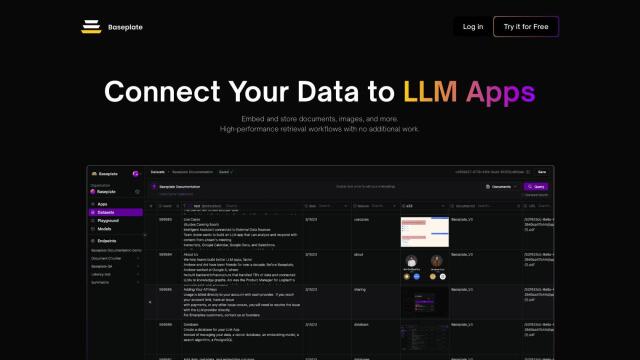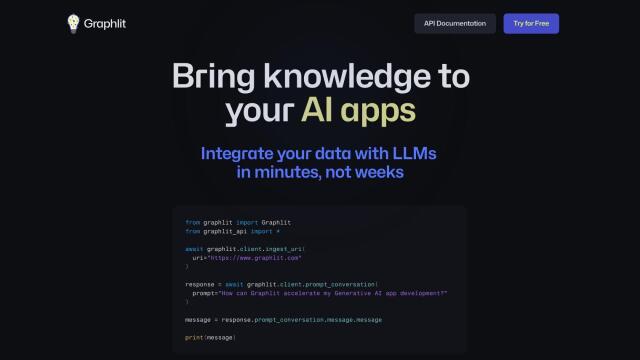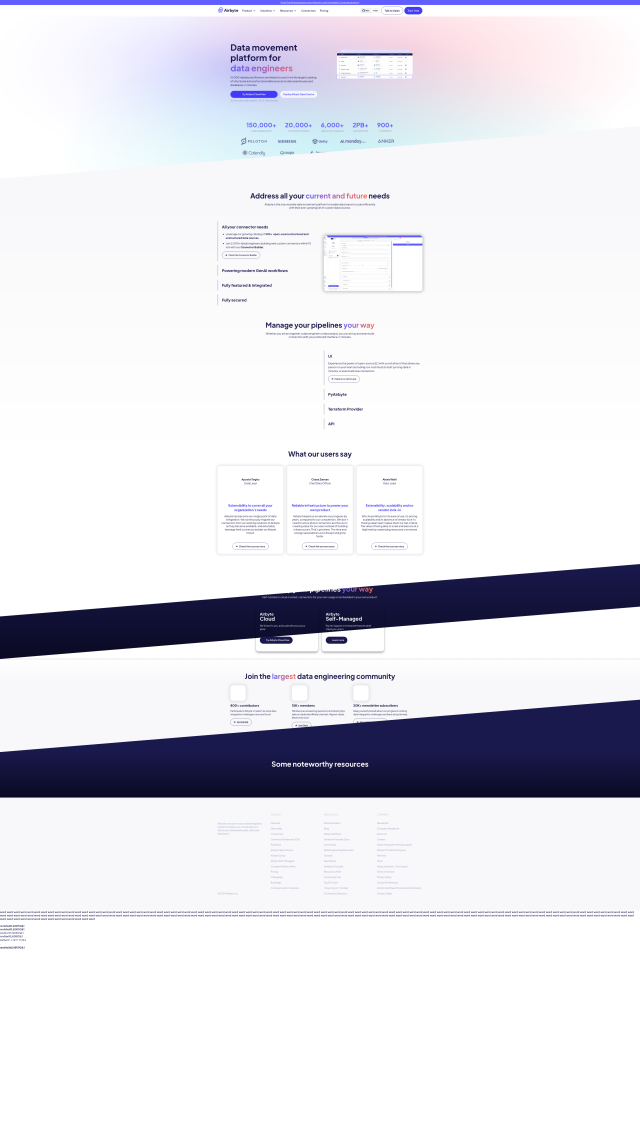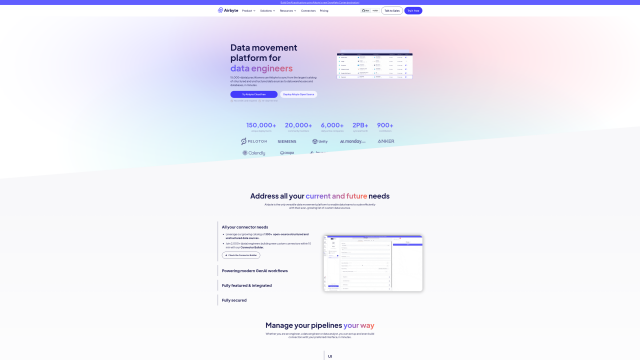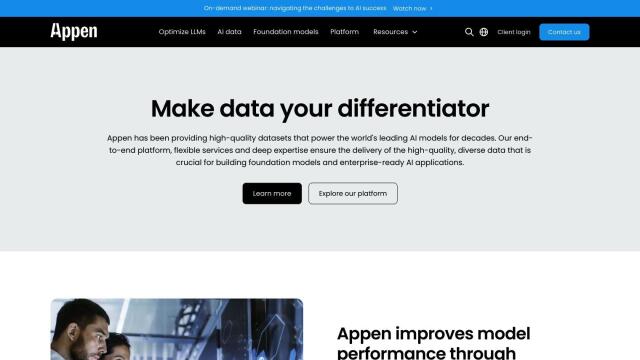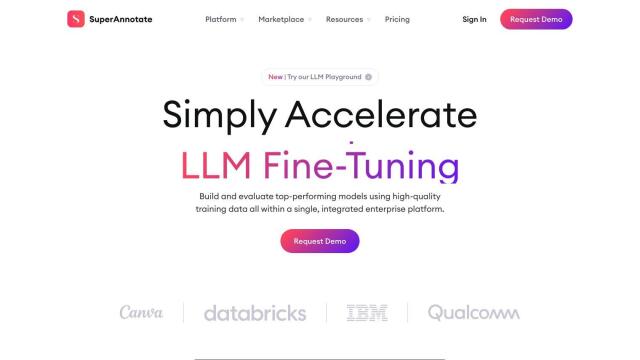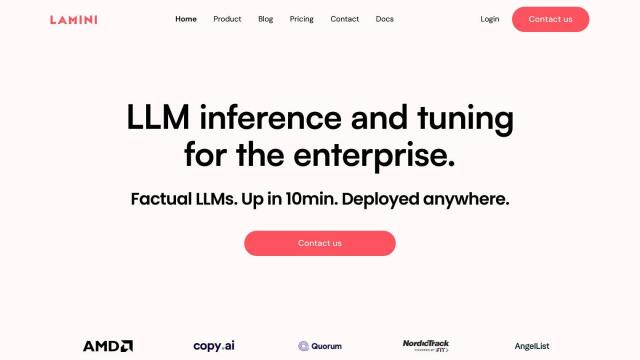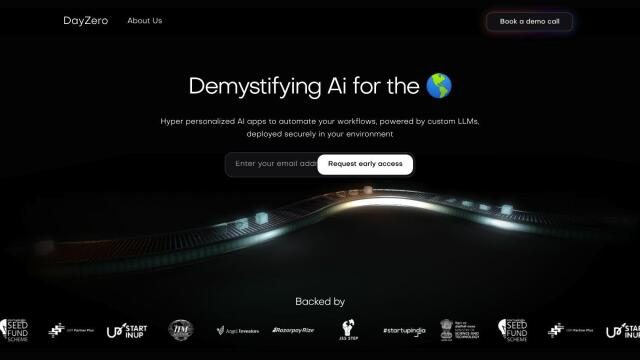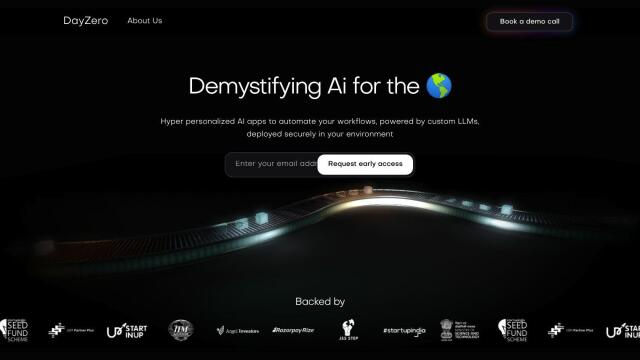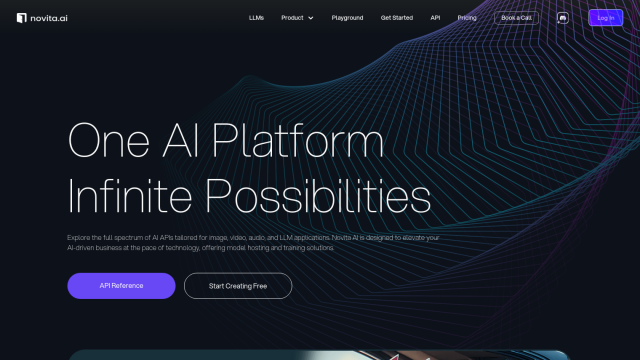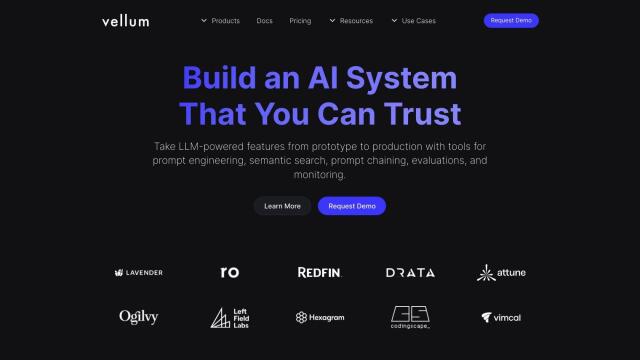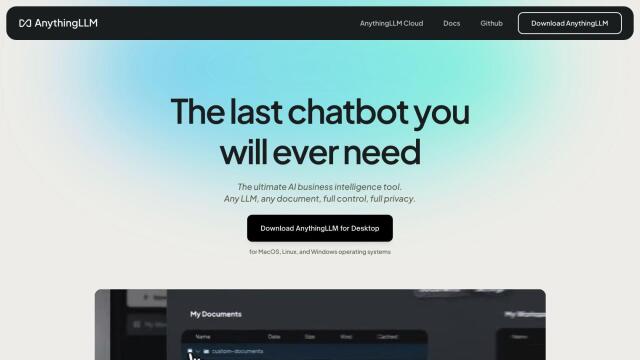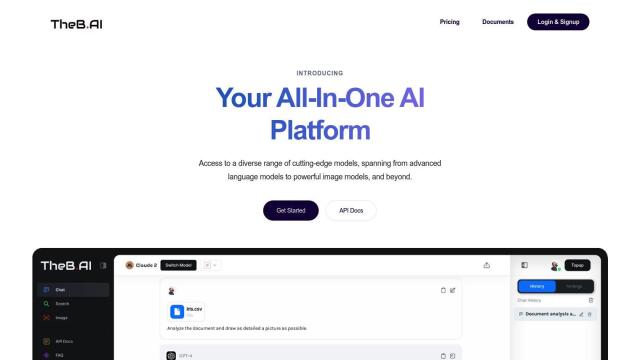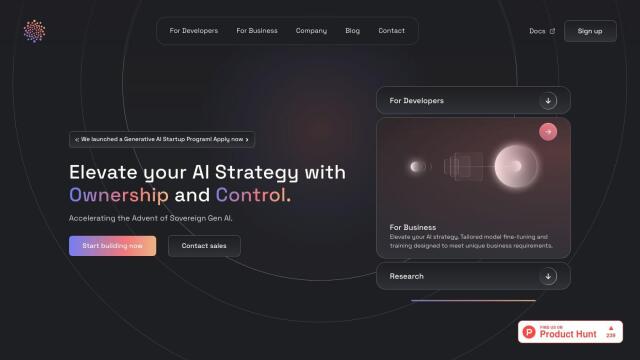Question: Do you know of a Large Language Model platform that can handle various data types, including images and tables, and integrate with multiple data sources?
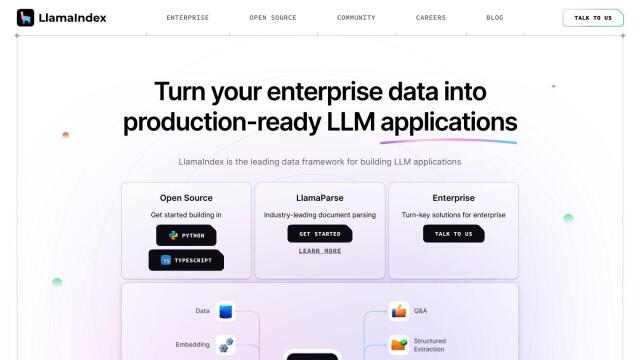
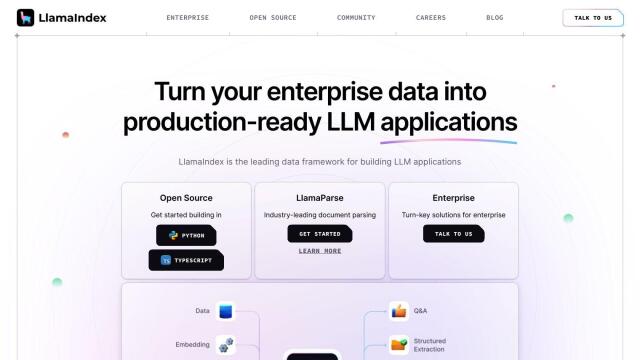
LlamaIndex
LlamaIndex is a great option, with a data framework that lets you plug your own data sources into large language models. It supports more than 160 data sources and 40 vector stores, document stores, graph stores and SQL databases, so it can handle a lot of different data formats and even structured data. The framework handles data ingestion, indexing, querying and performance testing, and there are services you can use through Python and TypeScript packages. There's a free tier, a paid tier and an enterprise version, LlamaCloud.


Dataloop
Another top contender is Dataloop, an AI development platform that includes data curation, model management, pipeline orchestration and human feedback. It's good at handling lots of unstructured data from lots of sources, including images and video, and offers automated preprocessing and embedding for similarity detection. Dataloop can also be used to deploy and manage AI models, visualize and automate workflows, and integrate with common cloud computing foundations, so it's good for collaboration and development speed.


Hebbia
And if you're a big company or organization that needs a lot of data management and AI horsepower, Hebbia is worth a look. It's based on Matrix technology, and you can use it to ask AI agents questions and to process big swaths of data. Hebbia can query millions of documents at once and supports multi-file processing, end-to-end encryption and automated workflows. It's geared for industries like financial services, law and pharmaceuticals, where you need to extract and analyze data.

